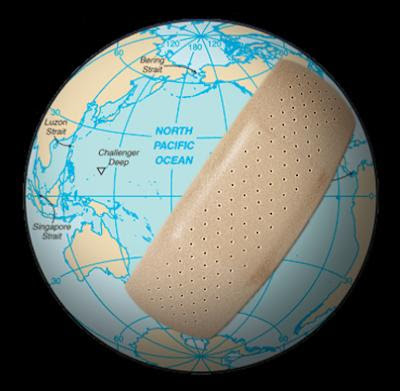 Who's to provide aid to Africa when many developed countries themselves could use some inflows? It seems this article is obvious enough: as more and more Western countries come under pressure to rationalize their fiscal policies, among the items on the "to-cut" list is overseas development aid. The trigger-happy UK coalition has supposedly "ring-fenced" foreign aid and then some, but the situation may not be the same in other countries once the reality of more austere times sets in. What are the geopolitical implications of bean-counting Western countries? Answer: African countries coming under the greater influence of free-spending China.
Who's to provide aid to Africa when many developed countries themselves could use some inflows? It seems this article is obvious enough: as more and more Western countries come under pressure to rationalize their fiscal policies, among the items on the "to-cut" list is overseas development aid. The trigger-happy UK coalition has supposedly "ring-fenced" foreign aid and then some, but the situation may not be the same in other countries once the reality of more austere times sets in. What are the geopolitical implications of bean-counting Western countries? Answer: African countries coming under the greater influence of free-spending China.From the Nigeria's Daily Trust (c/o All Africa) comes this feature in which the Chief Economist of the African Development Bank Mthuli Noube cautions African states to prepare for this seeming inevitability:
Foreign aids inflow from donor countries are drying up and in the next 15 years, many poor African countries may not be able to access the window, Chief Economist of the African Development Bank Group (AfDB) Professor Mthuli Ncube has alerted. He attributed the new trend to several economic factors that are redefining economic relations around the world, some of which include the economic recession in Europe and America, and Africa's new economic partner - China.So the rise of China in relation to the West has manifold implications on other parts of the world. As we've asked many times before [1, 2, 3, 4, 5, 6, 7, 8], has the yellow man's burden replaced the white man's burden or do the Chinese something more constructive than the colonizers of yore? In particular, do proceeds from China's hunger for natural resources benefit more folks and create jobs in Africa?
Economic recession has forced some European countries like Britain, France, Germany, Ireland, Greece and Portugal to consider austerity measures with rising concerns that immigration and development budgets may be stifled. From 1960 to 2008, foreign donors have pumped over $650 billion in aids into the continent with a population of about one billion people...
Professor Ncube said African countries must focus on building infrastructure and strengthening intra-continent economic ties. China, he said, has introduced a new model to aid through its policy of 'resources for infrastructure'. Chief Investment Officer, Private Sector Department of AfDB Godfrey Mwindare told this reporter in Tunis that the entrance of China into Africa would create competition and fair deal, and that the continent is not currently benefitting from its extractive resources.
Africa's trade with China has doubled every three years since 2000 and hit $107 billion in 2008, eclipsing the United States as the biggest trading partner. Trade with China fell to $90 billion in 2009 because of the global recession. But the US Commerce Department said trade ties with Africa fell from $141 billion in 2008 to $86 billion in 2009.
Some 800,000 Chinese workers are now in Africa, according to a website that focuses on China in Africa, www.saiia.org.za. Addressing a press conference last Friday top economist and former CEO of France's international development agency, the Agence Française de Dévelopement Jean-Michel Severino said Africa has come of age to decipher its needs, and that the era of compassionate aids was over.
Also see a recent post looking at historical aid flows from 1960 to the present.
